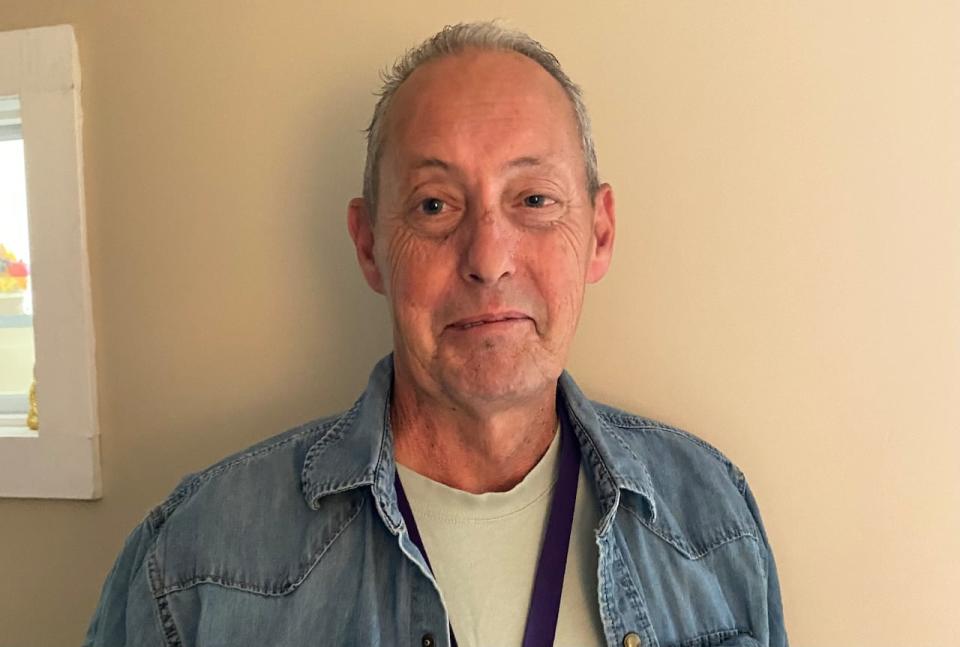Calgary's rental prices climbing faster than anywhere else in the country

Touted in recent years as one of Canada's most affordable big cities, Calgary's rental prices are now increasing faster than any other large market in the country.
That's according to a recent report by Rentals.ca, an online marketplace that leverages data from new apartment listings across Canada. The report found that in July, the price of a one- and two-bedroom rental increased by 17 per cent year-over-year — the highest jump in the country.
It now costs an average of $1,718 for a one-bedroom apartment and $2,121 for a two-bedroom apartment in Calgary.
Giacomo Ladas, director of communications with Rentals.ca, says he doesn't see that trend changing anytime soon.
"With the vacancy rates as low as they are, we kind of don't expect these prices are going to change until we see a mass build of purpose-built rentals across the country," said Ladas.

Giacomo Ladas with Rentals.ca says the key to cooling the rental market is to build more purpose-built rentals, and fast. (Bryan Labby/CBC)
So what's contributing to these rapidly increasing rents?
Ladas says this summer has been the perfect storm: university students are back and in search of housing. Increasing numbers of Canadians are moving to the province. Interest rates were hiked to a 22-year high. All while Calgary's vacancy rate remains at a near-decade low.
Still, Calgary is far from having the most expensive rents. In fact, the report shows Vancouver and Toronto continue to hold that spot, with Calgary in 26th place.
But that's also part of the problem, says Ladas. Since people are being priced out of those bigger cities, they're continuing to move here instead — and even Calgary's growing rental costs are a relief from prices in other markets.
He says the main solution is to build purposeful rentals at mass scale, otherwise the burden on the rental market will persist.
"This requires lots of reform in larger municipalities and their land use divisions to really help incentivize projects to go bigger and faster," said Ladas.
"We really need to see more supply come into the market."
Calgary Housing waitlist grows to 5,300
Meanwhile, Calgary Housing Company's waitlist has grown to 5,300 families — up from 5,000 in the spring. That organization manages rental and rent supplement programs on behalf of the city of Calgary and the province of Alberta.
Nearly 25,000 Calgarians, including about 10,000 children, live in a CHC-managed dwelling, according to its website.
Larry Dunlop, 60, is one of many Calgarians desperate for an affordable place to live.
His one-year stay in transitional housing ends in October, and to prepare, he says he's been on six wait lists for affordable housing since the beginning of the year.

Larry Dunlop, a 60-year-old Calgarian who relies on AISH, says he's out of options if he isn't able to find housing in his tight budget by October. (Submitted by Larry Dunlop)
Dunlop, who relies on the government's AISH — Assured Income for the Severely Handicapped — program, says the rental crunch is especially difficult for people with disabilities and seniors on a fixed income.
He says he even faces barriers when applying for affordable housing.
"If I go to apply to rent a place that's subsidized, they require a medical. My doctor is going to want $80 to fill out a medical for this place … I can't afford that. I just simply can't afford it," said Dunlop.
Dunlop says he's worried more people will fall into addiction if they're struggling to get by, and he wants governments and the housing sector to tackle creative solutions to the housing crisis.
"Tiny houses would be a good idea, like what ATCO did for veterans," he said.
He says he'd also like to see regulations implemented around big corporations acquiring and owning rental apartment buildings.
In the meantime, Dunlop is trying to get a chance to speak in front of the City of Calgary's Community Development Committee on September 14th — when they're set to discuss the city's updated housing strategy.


